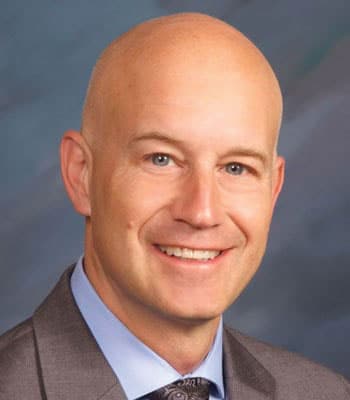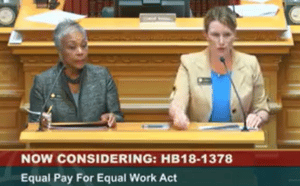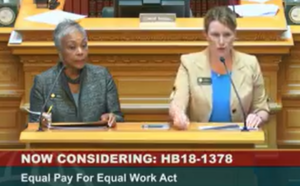Indicators paint blurry picture of Colorado’s third-quarter economy
DENVER — Prices are up, but unemployment is down. New business filings are through the roof, but are being outpaced by dissolutions. Industries are adding workers, but the fastest-growing jobs are the ones that pay the least.
Mixed signals reigned during the third quarter of 2022, according to the Colorado Secretary of State’s Quarterly Business and Economic Indicators report prepared with help from the Business Research Division at the University of Colorado Boulder Leeds School of Business, painting a muddled picture of the state of business affairs heading into the end of the year.
What does appear to be clear is that Colorado is outperforming the nation in many economic-development metrics.
Coloradans have “a lot to celebrate” as the state’s economy has rebounded admirably post-COVID-19 pandemic, Colorado Secretary of State Jena Griswold said Tuesday morning. But progress still must be made in order to “ensure Colorado families and the business communities continue to thrive.”
A point of pride for the state continues to be its labor force.
“In Colorado, 375,200 job losses were recorded from February 2020 through April 2020, but 437,700 jobs were added from May 2020 through September 2022, further ratcheting Colorado above the pre-pandemic peak,” the report said.
In September, Colorado recorded the country’s second-highest labor-force participation rate of 69.5% and the highest wage-growth rate of 6%.
“The supply of workers is a comparative advantage that we have” versus other states where workers tend to be less skilled and more apt to remain on the sidelines, said Brian Lewandowski, executive director of the Business Research Division.
A total of 43,657 new business entities, most of which were LLCs, were filed in the third quarter of 2022, a year-over-year boost of 14.5%.
Under ordinary circumstances, this figure would be seen as a harbinger of positive economic momentum heading into the fourth quarter — but the current circumstances aren’t ordinary.
During the same period of growth for new filings, “delinquencies increased, up 8.9%, and dissolutions were up sharply 27.1%,” the indicators report said, representing “signals of business strain.”
Price increases remain top of mind for consumers and business leaders alike. There are some signs that inflation could be moderating in the back half of 2022, but seemingly contradictory data points continue to blur the overall economic picture.
In the Denver metropolitan area, which includes Boulder and Broomfield counties, the consumer price index was up 7.7% year over year in September, lower than the national growth rate of 8.2%. But core inflation increased 7.2% in the Denver region, higher than the national price growth rate of 6.6%.
The U.S. Federal Housing Finance Agency’s Purchase Only Home Price Index for Colorado increased 17.7% from the first quarter of 2022 to the second. While that’s a seemingly high figure, the increase is only good for 19th-highest in the country.
“Colorado’s monthly retail gasoline prices spiked in 2022 but began to normalize as the year progressed. Prices were up 1.8% year-over-year in October but decreased 24.7% from the average in June, according to the Energy Information Administration,” Griswold’s report said.
The confusing economic outlook has resulted in pessimism and skepticism from Colorado’s business leaders.
“Our latest data shows Colorado’s economy continues to excel relative to the nation,” said Rich Wobbekind, CU senior economist and Leeds Business Research Division faculty director, said in a prepared statement. “However, business leaders still remain pessimistic of the short-term economic outlook. Ahead of Q4 2022, the Leeds Business Confidence Index stood at 39.8 [a score of 50 is considered neutral] — in bear territory.”
Source: BizWest




